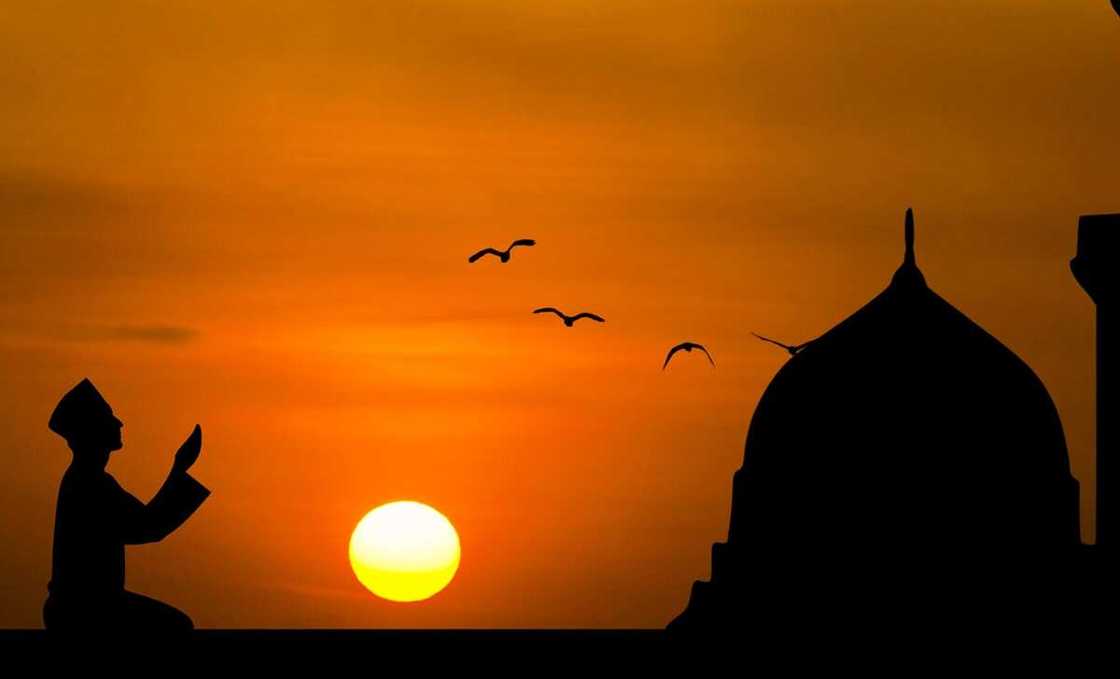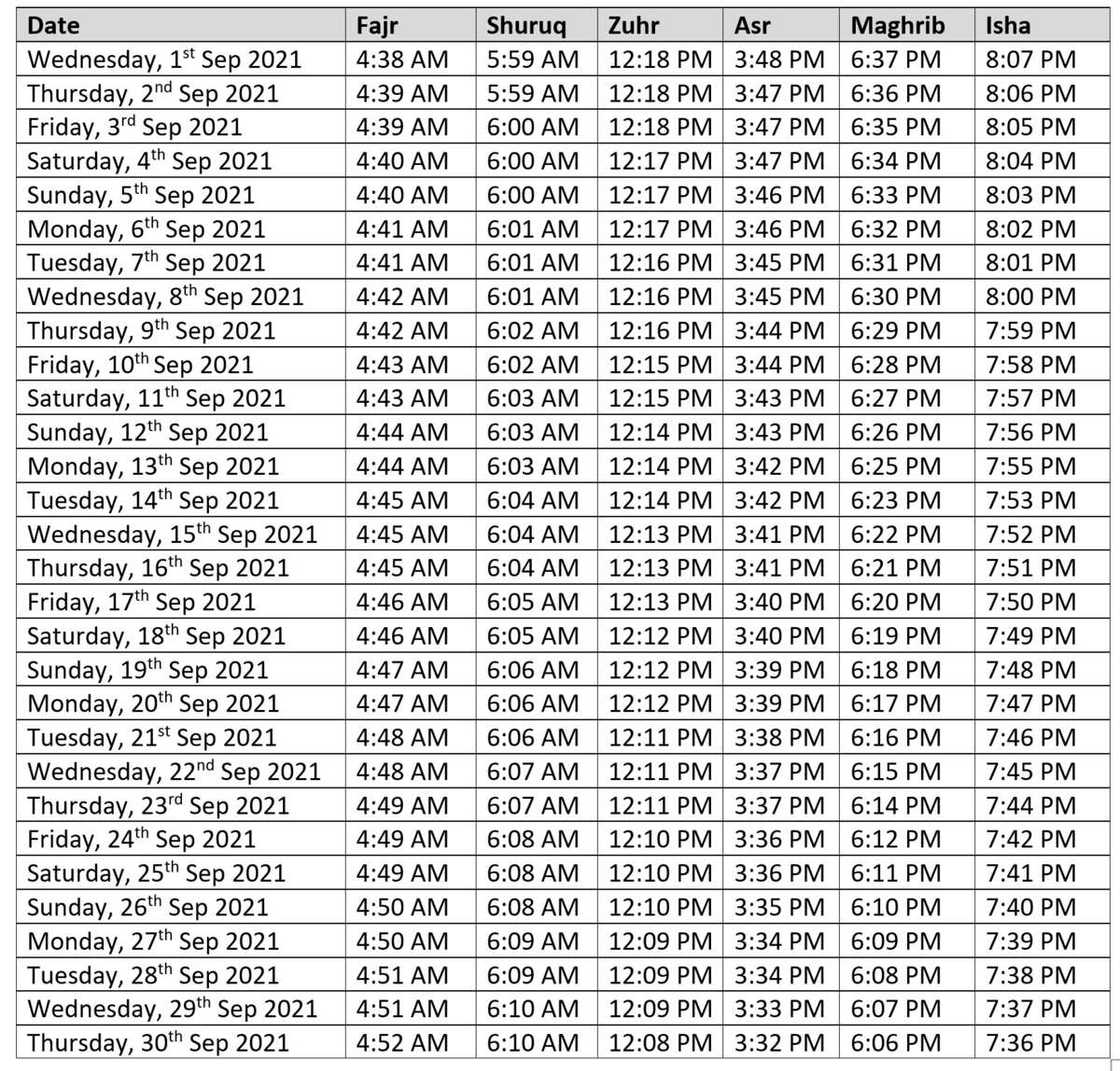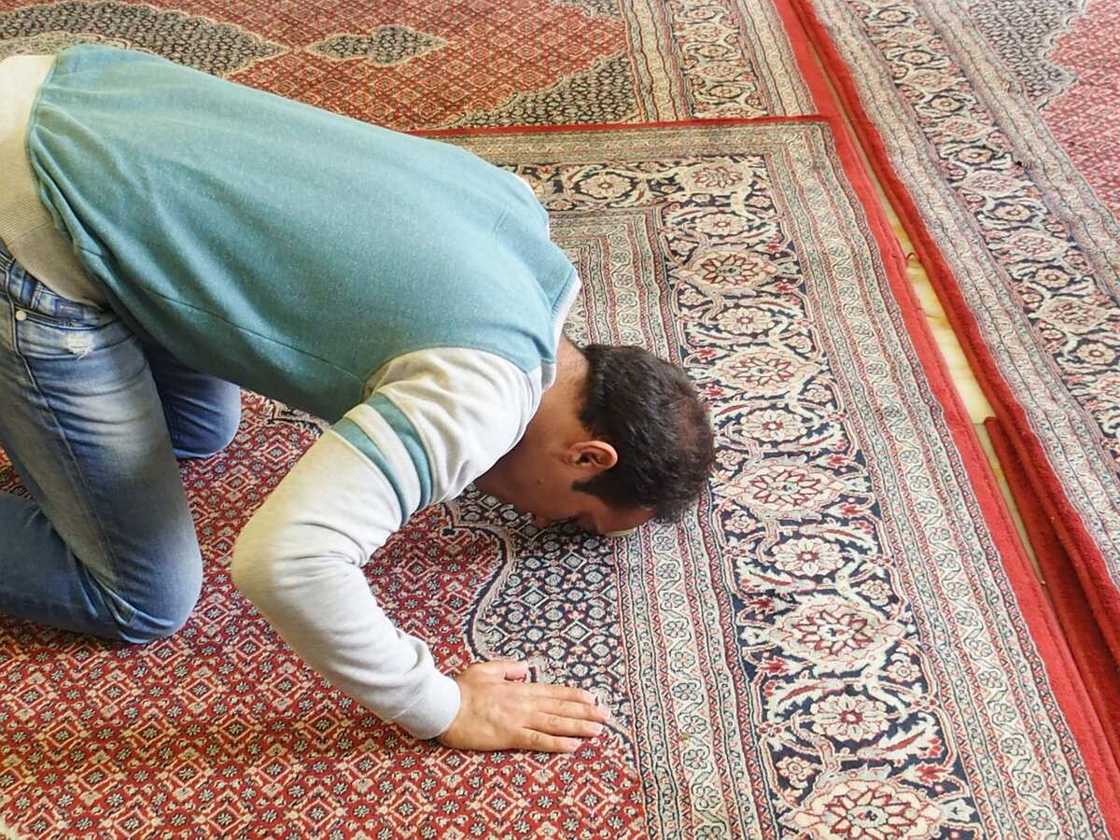Prayer time in Ajman: Fajr, Shuruq, Dhuhr, Asr, Maghrib, Isha
Prayer, supplication, or salah, as commonly known by Muslims, is one of the five pillars of Islam. The other four are the profession of faith, pilgrimage, fasting, and alms. There are five obligatory prayer times in Islam and a few voluntary ones. The times differ slightly from one region to the other since they are largely based on the sun’s movement. We will look at the current prayer time in Ajman, located in the United Arab Emirates.

Source: UGC
Ajman is one of the constituent emirates of the UAE and is composed of three sections. Here is a look at the current prayer timing in Ajman.
Prayer time in Ajman

Source: UGC
The prayer times explained
The Islam call to prayer is known as azan and is usually delivered by a muadhan. The call is meant to remind Muslims to attend the obligatory salah. Here is a look at the azan time in Ajman.
Fajr
Fajr is also known as salat al-fajr and is one of the five obligatory Islamic prayers or salah. In Islam, a day starts at sunset, making Fajr the third salat for Muslims. However, when counted from midnight, Fajr is the first salat of the day.
The September 2021 Fajr time in Ajman ranges between 4:38 am and 4:52 am.
Ishraq, Shurooq, or Duha
Ishraq is an optional prayer done about 20 minutes after the sun rises. It is known among some people as salat al-duha. The prayer is usually performed in two or more rakah (the movements that constitute a salah session, often having about seven steps).
The September Ajman prayer times for Ishraq range between 5:59 am and 6:10 am.
Zuhr

Source: UGC
The Zuhr prayer is also known as salat al-zuhr or Dhuhr and is among the obligatory prayers in Islam. With the Islamic day starting at sunset, Zuhr is the fourth prayer for Muslims. When counted from midnight, it is the second salat of the day.
Salat al-zuhr contains four rakah and takes place after the sun has reached its zenith. On Fridays, Zuhr is preceded or replaced by the Friday salah, which is mandatory for all Muslim males past the age of puberty.
In September, the start of Ajman prayer time for Zuhr ranges between 12:18 pm and 12:08 pm.
Asr
Also known as salat al-asr, this supplication is performed in four rakah. Like Dhuhr, Asr is performed in a congregation. The salat begins when the sun is about halfway between its zenith and sunset.
However, some branches posit that Asr time begins when an object’s shadow is twice its length plus its noontime shadow. Others say that the time begins when an object’s shadow is twice its actual length.
Asr start time in Ajman ranges between 3:48 pm and 3:32 pm.
Maghrib

Source: UGC
This prayer is also known as salat al-maghrib or sunset salat. It is mandatory for Muslims and takes place at sunset. In Islam, it is the first salah of the day since the day starts at sunset. However, when counted from midnight, Maghrib is the fourth salat of the day.
For Shia Muslims, Maghrib and Isha can be performed one after the other. For Sunni Muslims, though, Maghrib starts after Asr and ends when the night begins, marking the start of the Isha salah. For September, the start of Maghrib time in Ajman ranges between 6:37 pm and 6:06 pm.
Isha
The Isha prayer is also known as salat al-isha or the night salat. With the Islamic day starting at sunset, Isha is the second prayer of the day. However, it becomes the fifth daily prayer when counted from midnight. Isha contains four rakah and can be followed by some optional salah, including the tarawih during Ramadan and qiyam ul-layl.
The current Isha start time in Ajman ranges from 8:07 pm and 7:36 pm.
What is Rakah?
Rakah consists of several movements carried out by Muslims when offering salah to Allah. A single rakah consists of about seven movements that include standing, bending, and kneeling.
The current prayer time in Ajman varies slightly from one day to the other, depending on the sun’s movement. With the above table chart, one should easily keep track of the salah times in the small constituent emirate of the UAE.
READ ALSO: Ramadan: history, meaning, and purpose of the Holy Month
Legit.ng recently explored the purpose, meaning, and history of Ramadan. The period marks a time of reflection, prayer, and fasting by Muslims all over the world. During Ramadan, Muslims refrain from consuming food and beverages between sunrise and sunset.
The period has a rich history dating back to about 610 A.D. During Ramadan, the fasting ends at sunset and is marked by sharing meals among friends and family. Eid al-Fitr marks the end of Ramadan.

Read also
Alaafin of Oyo: 8 days after, top Islamic preacher Sheikh Faruq holds special prayer for Oba Lamidi Adeyemi
Source: Legit.ng






